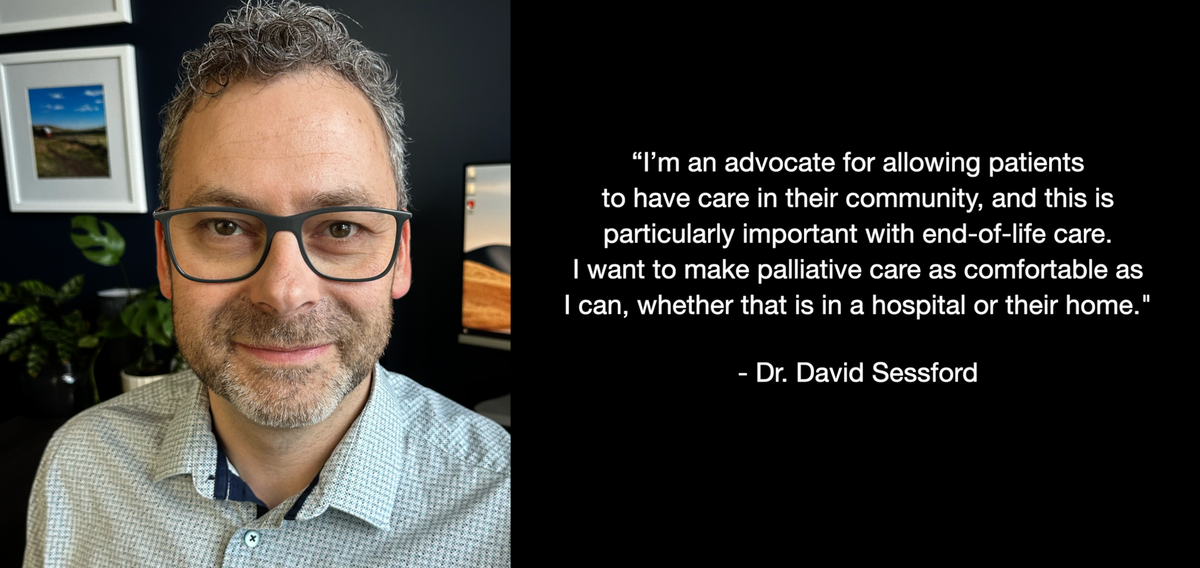Losing a loved one is painful, whether it happens suddenly or it is expected. Either way, the kindness and compassion of the medical professionals surrounding you can help make a difficult time a bit easier.
Dr. David Sessford is a family physician in Vulcan, Alberta. The family of one of his patients was exceptionally grateful for the care he provided to their mother in her final days. The family noted Dr. Sessford exemplified unwavering compassion, expertise and empathy throughout the family's journey, and it was clear to them that “Dr. Sessford was not just a medical professional, but a true guardian of human dignity.”
“Dr. Sessford displayed remarkable communication skills, making complex medical details accessible to us and enabling us to make informed decisions. In those challenging moments, Dr. Sessford provided unwavering support, both physically and emotionally. His presence brought comfort, his expertise reassured us, and his profound kindness gave solace. Our family felt seen, heard and respected.”

The family felt Dr. Sessford’s patient-centered approach extended beyond mere medical care because he dedicated time to understand their mother's wishes, fears and hopes, and they noted, “In the end, it was not just medical expertise that defines Dr. Sessford, but his humanity.”
As a family physician, Dr. Sessford is there for all stages of his patients’ lives. As a physician in a rural setting, he sees patients in both clinic and hospital.
How long have you been practicing family medicine?
I’ve been practicing four years.
Why did you go into family medicine?
Family medicine is often the first point of contact with patients. I get to know each patient, and I can follow their health over time. A family practice also provides a variety of health presentations, and I enjoy the challenges that this can bring.
Why did you choose to practice in a rural setting?
A rural setting provides a broad scope of practice that is well suited to what I like to do. I get a good mix of patients and, as I mentioned, I get to be a part of their lives, from pediatric to palliative care.
I’m also an advocate for allowing patients to have care in their community, and this is particularly important with end-of-life care. I want to make palliative care as comfortable as I can, whether that is in a hospital or their home.
What is most rewarding about your work?
I’m happy when I see the wins with patients because I’ve alleviated some of their medical concerns or improved their quality of life. It’s satisfying to see them doing better.

